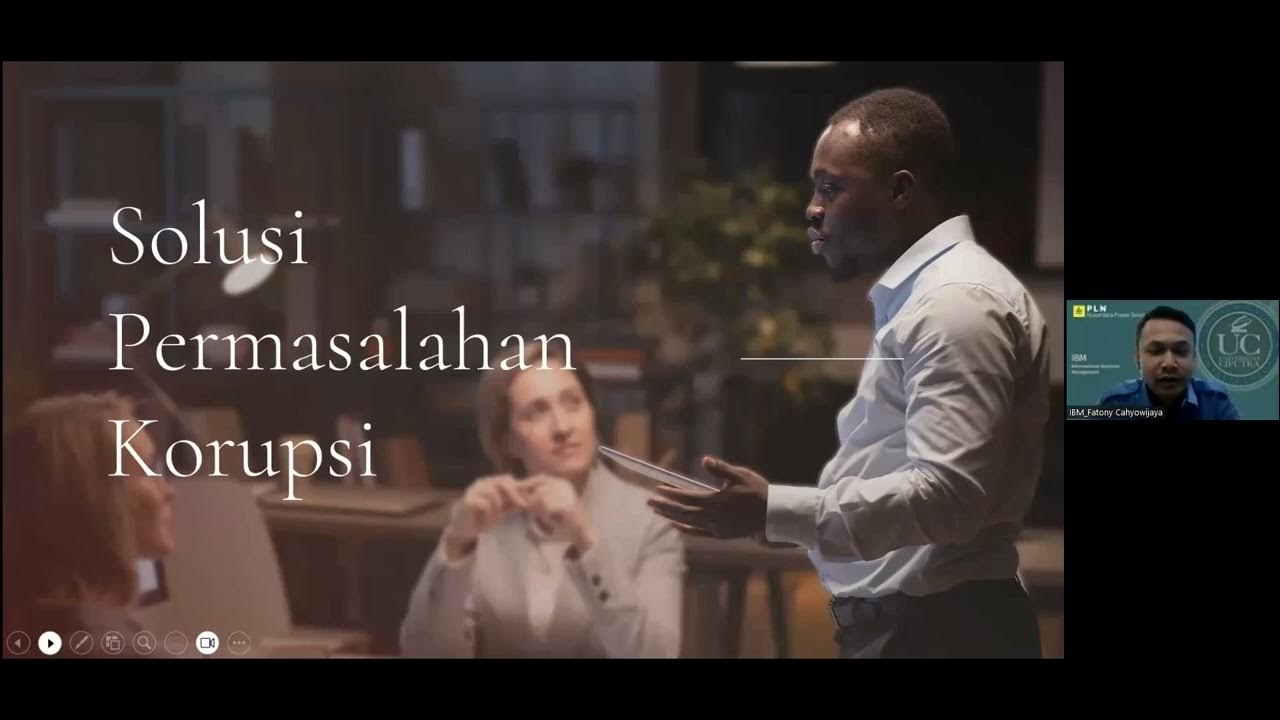CAN WE CURB CORRUPTION BEFORE THE NEXT GENERATION? | Deborah Kuyebi | TEDxYouth@FuntajIntlSchool
Summary
TLDRThe speaker addresses the pervasive issue of corruption in Nigeria, highlighting its impact on various sectors of society, including the home, schools, and the public sector. Using personal anecdotes and social commentary, they emphasize how corruption has become normalized in everyday life, urging citizens to take responsibility for change. The speaker calls for discipline in homes, positive peer influence in schools, and integrity in the public sector, stressing the importance of unity in uprooting corruption before it further undermines the nation’s future. The choice to act lies with every individual.
Takeaways
- 😀 Corruption in Nigeria started just ten years after independence and has since permeated every aspect of society.
- 😀 Corruption is defined as the abuse of entrusted power for private gain.
- 😀 The speaker highlights how corruption affects individuals from childhood, with parents using bribes to encourage certain behaviors.
- 😀 Children today grow up thinking that bribery is a normal part of life, believing that getting what they want requires offering something in return.
- 😀 In schools, students who engage in unethical behavior (like cheating or skipping classes) are often rewarded with good grades, setting a bad example for future leaders.
- 😀 Corrupt individuals who fail in their educational roles are less likely to fulfill their responsibilities as leaders in society.
- 😀 The public sector in Nigeria is portrayed as the face of corruption, where officials misuse public funds for personal luxuries instead of helping communities.
- 😀 Examples of misuse of power include governors and ministers spending public funds on items like expensive watches, houses, and cars.
- 😀 Public officers, such as police and university lecturers, suffer from low wages and poor working conditions, leading to inefficiency and frustration.
- 😀 The speaker calls for a change in mindset, emphasizing that cultural change starts with individual responsibility at home, in schools, and in public life.
- 😀 To curb corruption, parents must instill discipline and values in their children, students should resist negative peer pressure, and citizens must unite to reject corrupt politicians and their false promises.
Q & A
What is the main topic of the speech?
-The main topic of the speech is the issue of corruption in Nigeria and how it has affected various aspects of society, including homes, schools, and the public sector.
According to the speaker, when did corruption start in Nigeria?
-The speaker mentions that corruption started in Nigeria ten years after the country gained independence and has since infiltrated every aspect of society.
What childhood experience does the speaker reference to explain how corruption is learned?
-The speaker refers to a childhood experience where parents would offer rewards, such as allowing children to watch TV or go out to play, in exchange for good behavior or completing tasks. This is used to highlight how children may learn to expect rewards for actions, which can be linked to corrupt behavior in the future.
What is the speaker's criticism of students in schools?
-The speaker criticizes students who do not complete assignments, fail to participate in class, and engage in exam malpractice but still manage to achieve good grades. The speaker suggests that such behavior contributes to the culture of corruption.
What issues does the speaker raise regarding the public sector in Nigeria?
-The speaker highlights the misuse of public funds by politicians, such as purchasing expensive luxury items like Rolex watches and infinity pools, while critical public services like the police, universities, and infrastructure are underfunded.
What societal behaviors does the speaker criticize in Nigeria?
-The speaker criticizes behaviors such as skipping lines, running red lights, and generally disregarding rules, suggesting that these small actions contribute to the larger culture of corruption.
What does the speaker suggest as a solution to curb corruption?
-The speaker advocates for a return to core values such as discipline, religious and social values in homes, positive influence in schools, and unity in resisting corrupt politicians in the public sector.
How does the speaker view the role of parents in addressing corruption?
-The speaker calls on parents to pay attention to their children's upbringing, instill discipline, and teach them religious and social values as a means to counteract the culture of corruption.
What is the speaker's stance on the influence of politicians in combating corruption?
-The speaker urges the public not to be swayed by politicians who offer temporary material gifts, but to stand together in unity and reject corruption, emphasizing that this is essential for the country’s progress.
What does the speaker mean by 'culture doesn't just happen'?
-The speaker implies that culture is formed through actions, choices, and values over time. To change a corrupt culture, one must address its roots, starting with behavior and values in homes, schools, and public institutions.
Outlines

This section is available to paid users only. Please upgrade to access this part.
Upgrade NowMindmap

This section is available to paid users only. Please upgrade to access this part.
Upgrade NowKeywords

This section is available to paid users only. Please upgrade to access this part.
Upgrade NowHighlights

This section is available to paid users only. Please upgrade to access this part.
Upgrade NowTranscripts

This section is available to paid users only. Please upgrade to access this part.
Upgrade NowBrowse More Related Video

Why can’t Indonesia solve the problem of corruption? | Indonesia Decides

Solusi Efektif & Realistis Meredam Judi Online

Racial/Ethnic Prejudice & Discrimination: Crash Course Sociology #35

AFL3_Ethics_Kelompok1_Tinjauan Permasalahan Etika Terhadap Praktik Korupsi di Indonesia

Korupsi Tempe

O ÚNICO ASSUNTO PROIBIDO no FALA GLAUBER PODCAST
5.0 / 5 (0 votes)